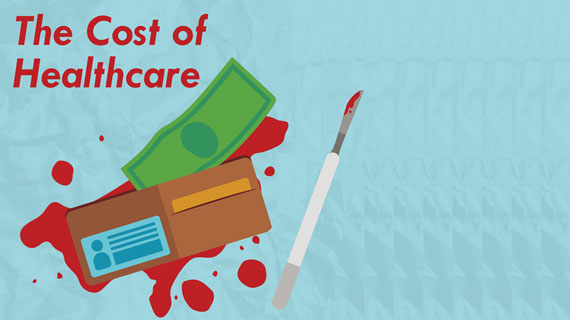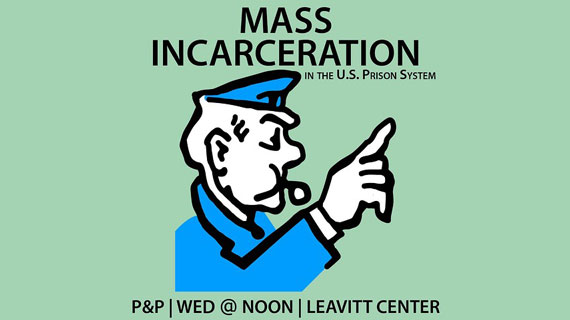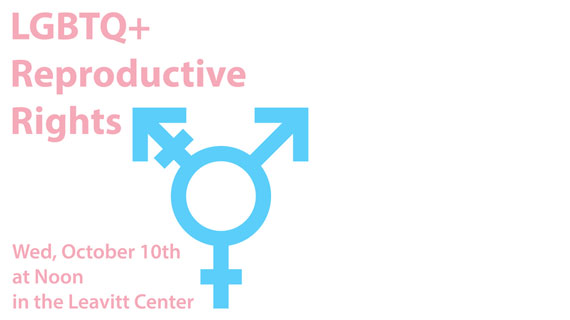Pizza & Politics - Health Care
Posted: October 15, 2018 | Author: Cami Mathews | Read Time: 5 minutes
 The Michael O. Leavitt Center for Politics and Public Service hosts Pizza & Politics every Wednesday at noon to discuss a current political topic. Leavitt Center student employees research the topic and moderate the conversation. These discussions expose students to a variety of important issues and encourages them to share their own perspectives while learning all sides of an issue. Free pizza is provided for all who attend.
The Michael O. Leavitt Center for Politics and Public Service hosts Pizza & Politics every Wednesday at noon to discuss a current political topic. Leavitt Center student employees research the topic and moderate the conversation. These discussions expose students to a variety of important issues and encourages them to share their own perspectives while learning all sides of an issue. Free pizza is provided for all who attend.
At some point in a person’s life, health care is needed. But no one can agree on how that health care should be provided. Whether it be universal care provided by the government, or private sector companies who fight within the free market, the discussion of health care is a heated and necessary conversation.
The health care P&P was moderated by Miles Anderson and Serena Woodhouse. Miles is a graduate student from North Logan, Utah. Serena is a senior economics and anthropology major from West Valley City, Utah. Both are members of the Leavitt Center Executive Council, the group of leadership students who plan events at the Leavitt Center.
The discussion began with a question posed to the audience: what are some things you like/don’t like about the U.S. healthcare system? Students came opinionated and ready to discuss. A lot of people did not like the expenses or the government mandates associated with health care. A handful did not support Obamacare while others favored the system. There was also a group of students who were in favor of universal health care provided by the federal government.
The U.S. has an insurance mandate system. The government provides health insurance to qualifying citizens. Everyone is required to have some type of health insurance or pay a fine. The fine is two and a half percent of household income or $695 per uninsured adult and $374.50 per uninsured child under 18, whichever is higher. Insurance will be mandatory through 2018, but the Tax Cuts and Jobs Act of 2017 takes effect in 2019 and health insurance will no longer be mandated.
Do you support or oppose the use of insurance mandates?
Almost the entire audience said they opposed insurance mandates. Some felt that the government shouldn’t mandate anything, leaving everything up to private companies. Others felt that if John Doe wants to risk not having insurance, that’s his fault. Some comments were in favor of insurance mandates because it helps lower the cost of healthcare for everyone.
According to the Wall Street Journal, from 2007 - 2014 health care was the only area of household spending that increased. Housing, transportation, food, and other categories of spending decreased but health care increased by 24.8%. The U.S. also spends twice the average of other developed countries in per capita health care spending.
Why is healthcare more expensive in the U.S. than in other comparable countries?
The first comment pinned the U.S. at the top of the world for health care, often leading to people traveling to the country for procedures. The U.S. must stay at the top of the list for health care, meaning it must feed money into the industry. People also pointed out that the U.S. is diverse in population, meaning a lot of different procedures are needed. Some countries with socialized health care have a homogenous population, inferring that medical procedures do not tend to differ from patient to patient.
Whose responsibility is it to bring down the cost of health care?
Some said the federal government should step in, control health care, and create regulations to drive down the cost. Others said that it is up to private companies to work more efficiently and lower the cost of their products. A good chunk of students said that the consumer is the one to bring down the cost of health care. Often brought up in private sector discussion, if the consumer does not like the moves of the company, they can shop elsewhere. This idea seemed agreed upon by a lot in the audience, until someone pointed out that a consumer cannot just find another seller for insulin and other life saving medicines.
The drug approval process is a long and expensive one. It takes six to seven years of preclinical testing to find compounds with therapeutic value. That is followed by four to five years of clinical testing which costs around $125 million. Finally, there are six months to two years for the new drug application. The average cost of getting a drug to market is $1.4 billion in out-of-pocket costs.
Does the cost of research and development justify the rising cost of drugs?
When a company gets a patent for a new drug, it lasts 20 years. However, that patent also covers the research and development years. This means that a company typically has nine years with their drug on the market because the other eleven were spent in the drug approval process.
Students agreed that the cost of drugs is too high, but were not sure how to solve the problem. Some said that patents should be extended so companies could have their drug on the market for a longer amount of time. Others said patents should be shorter or nonexistent, leading to the free market finding the cheapest options.
What are some possible solutions to the issues within the current healthcare system?
Many audience members felt that life-saving medication is the first place changes should be made. Insulin and inhalers, for example, should not be costing people an arm and a leg. Whether it be the federal government, private business, or the consumer, something needs to change and it needs to happen sooner rather than later.
For more information on Pizza & Politics, or other Leavitt Center events, visit their Facebook page.
This article was published more than 3 years ago and might contain outdated information or broken links. As a result, its accuracy cannot be guaranteed.
Tags: Student Leavitt Center




